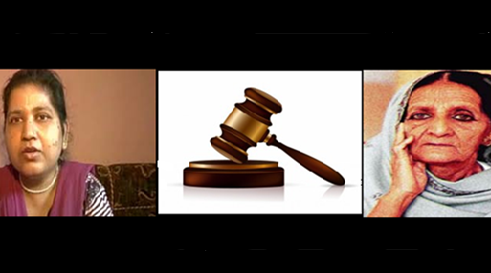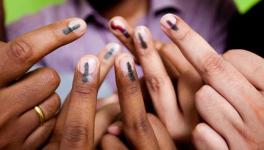Shahbano to Shayara Bano: A Long Journey by Muslim Women For Rights

Image Courtesy: The Citizen
In the Shabano case 1984 the issue was of the right to maintenance of the divorced Muslim woman that the courts allowed, and the legislature denied. In Shayara Bano’s case 2016, the very right to pronounce triple talaq is being challenged.
Shahbano was a destitute woman, divorced by her husband, who took the case to the courts and after a long while reached the Supreme Court for justice. All that she was asking was for the Rs 500 allowance under the Criminal Procedure Code made available by the law of the land for destitute women of all religions, and finally the apex court granted her the maintenance in what was a landmark ruling of the 1980’s.
Just as the ageing Shahbano was digesting the import of a ruling that would alleviate some of her misery, she became the centre of a political storm with then Prime Minister Rajiv Gandhi succumbing to the pressure of Muslim fundamentalists and negating the judgement with a new law Muslim Women (Protection of Rights on Divorce) Act 1985. That there was little to protect the Muslim woman was evident from the law that denied maintenance rights for divorced women of the community, and effectively removed Muslim women from the purview of the Criminal Procedure Code with even the paltry Rs 500 being seen as too much by the conservative men who had united in and outside Parliament to oppose the verdict.
Today Shayara Bano from Uttarakhand has approached the Supreme Court against the regressive triple talaq, polygamy and the demeaning practice of halala where the divorced woman can only get married to the husband in case they have a change of mind, by consummating her marriage with another man. In all three cases, the woman is treated as an object without individual rights or dignity.
Shayara Bano is a simple woman who was divorced, after a history of marital abuse, through a telegram that the local maulvi told her was valid. She has not seen her children now for over a year, and has been denied all rights including visiting rights. She underwent countless abortions---”I do not even remember how many”---by the husband who made her take contraceptives, and made ceaseless demands on her and her family for more dowry. The local clerics insisted her husband was within the law, and Shayara who is also not very clear why she is suddenly in the spotlights, but she is hopeful that a favourable ruling will help her and women like her.
It is not a surprise that the Muslim Personal Law Board has challenged the plea of Shayara Bano now, just as it had opposed and led the campaign against Shahbano over 30 years ago. It is a largely male dominated Board, non government, and formed in 1973. As it was filled with various clerics and individuals representing Muslim organisations it became a pressure group for susceptible governments, intervening on matters of the Muslim Law but never on the side of the woman. Although most of the members were recognised by the community as representing little but themselves, political governments at the centre and in states hesitated to fall on the wrong side of this body. The most public case was that of Shahbano, that had repercussions on the communal polity of India and was seen as giving majoritarian groups a handle to insist on the opening of the locks of the Ayodhya shrine. A case of two extremisms feeding into each other.
Muslim women challenged the Board, then as they are doing now. Other petitions have been submitted to the courts from Jaipur and Kolkata. Triple talaq has been singly responsible for destitution with this writer having interviewed scores of Muslim women who had been thrown out of their homes without warning. In practice the husband is required to do little more than to say the three words in front of a witness, and if the woman is not physically present, even post the divorce declaration to her as was done for Shayara Bano. While traumatic for all, often unsuspecting, women this is particularly devastating for poorer women, who find themselves on the streets with their children and no income. Parents are oft too poor to sustain them and the stories recorded by women organisations speak of the suffering they undergo. The man is left free to marry again, without bothering about maintenance.
The Muslim Personal Law Board is basically a defunct organisation, and often plays the role of blocking reforms and progress within the community. It has been anti Muslim women since 1973, and done little to ensure that they are able to move beyond the shackles of regressive personal laws since its inception. It has intervened to again insist that the courts cannot rule on matters of personal law, a matter that Muslim women have steadfastly refuted.
The RSS that had held meetings---even as progressive Muslim women were holding demonstrations---against the Rajiv Gandhi government’s decision to counter the Shahbano ruling then, is back in the current controversy through its Rashtriya Muslim Manch. This is campaigning against triple talaq, again predictably, and insisting that the apex court ruling be linked to the demand for a Uniform Civil Code. Fortunately this time both extreme groups have not had a clear field to operate in, with the Bharatiya Muslim Mahila Andolan coming in to insist that triple talaq is unIslamic in itself. The BMMA has recently approached the courts for Muslim women to be allowed to pray in the Haji Ali shrine in Mumbai, and the favourable ruling the women activists hope will augment well for the triple talaq case as well.
Disclaimer: The views expressed here are the author's personal views, and do not necessarily represent the views of Newsclick.
Get the latest reports & analysis with people's perspective on Protests, movements & deep analytical videos, discussions of the current affairs in your Telegram app. Subscribe to NewsClick's Telegram channel & get Real-Time updates on stories, as they get published on our website.
























